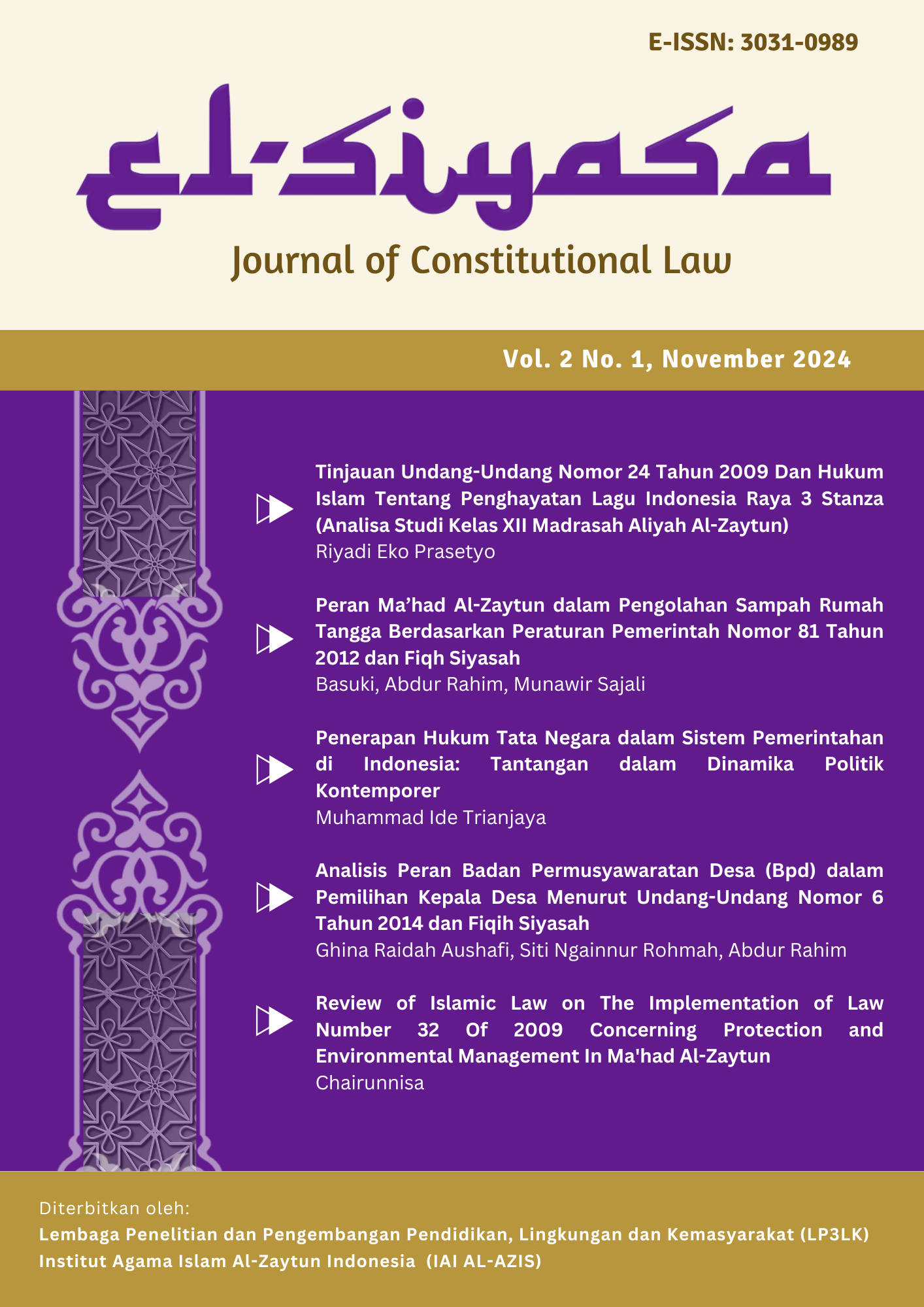REVIEW OF ISLAMIC LAW ON THE IMPLEMENTATION OF LAW NUMBER 32 OF 2009 CONCERNING PROTECTION AND ENVIRONMENTAL MANAGEMENT IN MA'HAD AL-ZAYTUN
DOI:
https://doi.org/10.61341/el-siyasa/v2i1.015الكلمات المفتاحية:
Environment, Protection and Management, Positive Law, Islamic Lawالملخص
This study examines the Islamic legal perspective on Indonesia's Law No. 32 of 2009 regarding environmental protection and management, with a specific focus on Ma’had Al-Zaytun. The research employs a qualitative method with a normative-empirical approach, collecting data through interviews, observations, and documentation. The results show that Ma’had Al-Zaytun implements comprehensive environmental management efforts, focusing on sectors such as livestock, fisheries, and agriculture, alongside environmental health practices. These efforts include the use of liquid and solid waste, pesticide control, soil conservation, and air pollution prevention. The study finds that the implementation of environmental management at Ma’had Al-Zaytun adheres to both Islamic law and national regulations, aligning with the principles of environmental fiqh (jurisprudence). The core of this approach is mashlahah (the common good), which upholds the objectives of Maqasid al-Shariah, focusing on the protection of five essential needs: religion (hifz al-Din), life (hifz al-Nafs), intellect (hifz al-Aql), lineage (hifz al-Nasl), and property (hifz al-Mal). The study highlights the importance of community participation and effective government policies in addressing the increasingly complex environmental challenges.
التنزيلات
التنزيلات
منشور
إصدار
القسم
الرخصة
الحقوق الفكرية (c) 2024 EL-SIYASA: JOURNAL OF CONSTITUTIONAL LAW

هذا العمل مرخص بموجب Creative Commons Attribution-ShareAlike 4.0 International License.





